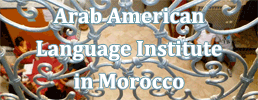 The National Council is proud to serve as the American Main Office for the Yemen College of Middle Eastern Studies (YCMES), whose campus is centrally located in Sana’a, the capital of the Republic of Yemen. YCMES is a fully accredited, non-profit college that provides students and scholars from around the world the opportunity to develop a complex knowledge of the Arabic language and the contemporary Middle East. Students can study at YCMES for 5, 10, or 15 weeks, or more — programs are tailored to meet students’ needs.
The National Council is proud to serve as the American Main Office for the Yemen College of Middle Eastern Studies (YCMES), whose campus is centrally located in Sana’a, the capital of the Republic of Yemen. YCMES is a fully accredited, non-profit college that provides students and scholars from around the world the opportunity to develop a complex knowledge of the Arabic language and the contemporary Middle East. Students can study at YCMES for 5, 10, or 15 weeks, or more — programs are tailored to meet students’ needs.
Sana’a, Yemen is an ideal location for language acquisition and cultural immersion. Unlike many other Middle Eastern cities where English and/or French are pervasive, Sana’a is one of the few remaining places in the world where Arabic is spoken exclusively. In short, it is nearly impossible to remain isolated in a Western bubble.
The Program in Arabic Language (PAL), the Arabic language department within the YCMES, was the first private institution in Yemen dedicated exclusively to teaching Arabic as a foreign language. The PAL has served the needs of international students, researchers, and the resident expatriate community since 1989. The YCMES’ Arabic Language Learning Program is open to international students of all ability levels, with program lengths from five weeks to a full calendar year.
 |
 |
 |
 |











You must be logged in to post a comment.